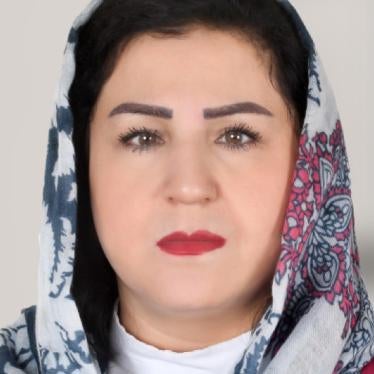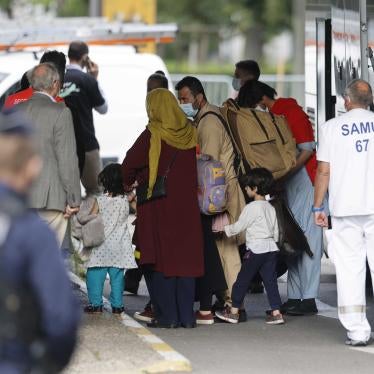Your excellencies, distinguished guests.
It is my pleasure to be with you here today. My name is Benafsha Yaqoobi, and I am a disability rights advocate from Afghanistan. Today, I speak to you on behalf of Human Rights Watch as their Marca Bristo Fellow, a fellowship that started three years ago in honor of one of the leading disability rights activists in the United States.
In 2021, I was forced to flee my country. I will never forget the scenes of chaos and uncertainty, including at the airport. But once I arrived in the UK, I noticed that we evacuees might be physically safe, but many of us continued to experience the trauma and psychological distress of being forced to leave home so suddenly and leaving our families behind. In 2022, Human Rights Watch documented that Afghan evacuees in France faced trauma long after their evacuation, with some struggling to find psychosocial support. The ongoing war in Ukraine and many other conflicts remind us of the importance of supporting the mental well-being of conflict survivors as they rebuild their lives.
Let me conclude by drawing your attention to the many people with disabilities who remain in my country. In my previous role as Afghanistan's Human Rights Commissioner, I experienced first-hand how women and girls with disabilities face intersecting and compounding forms of discrimination in a society where gender bias and violence against women are endemic. Even before the Taliban seized power, Human Rights Watch documented how women and girls with disabilities faced significant barriers in accessing health care, education and employment. The situation has now deteriorated even further. As both a women’s rights and disability rights activist, I can tell you it is sometimes hard to stay optimistic. For example, Afghan women and girls are still banned from secondary education and their freedom of movement, expression, and association are severely curtailed, depriving many women of earning a living. Human Rights Watch spoke with 16-year-old Atefa, who said: “For Afghan girls, the earth is unbearable, and the sky is unreachable.”
As we complete two years under the devastating impacts of Taliban rule, let me call upon you: let’s not forget the rights of women and girls with disabilities who are counting on us to raise our voices. Their perspectives, rights and needs need to be front and center when thinking about humanitarian support provided by the international community. They deserve our attention and support.
Thank you.
Benafsha Yaqoobi, 2022 Marca Bristo Fellow








